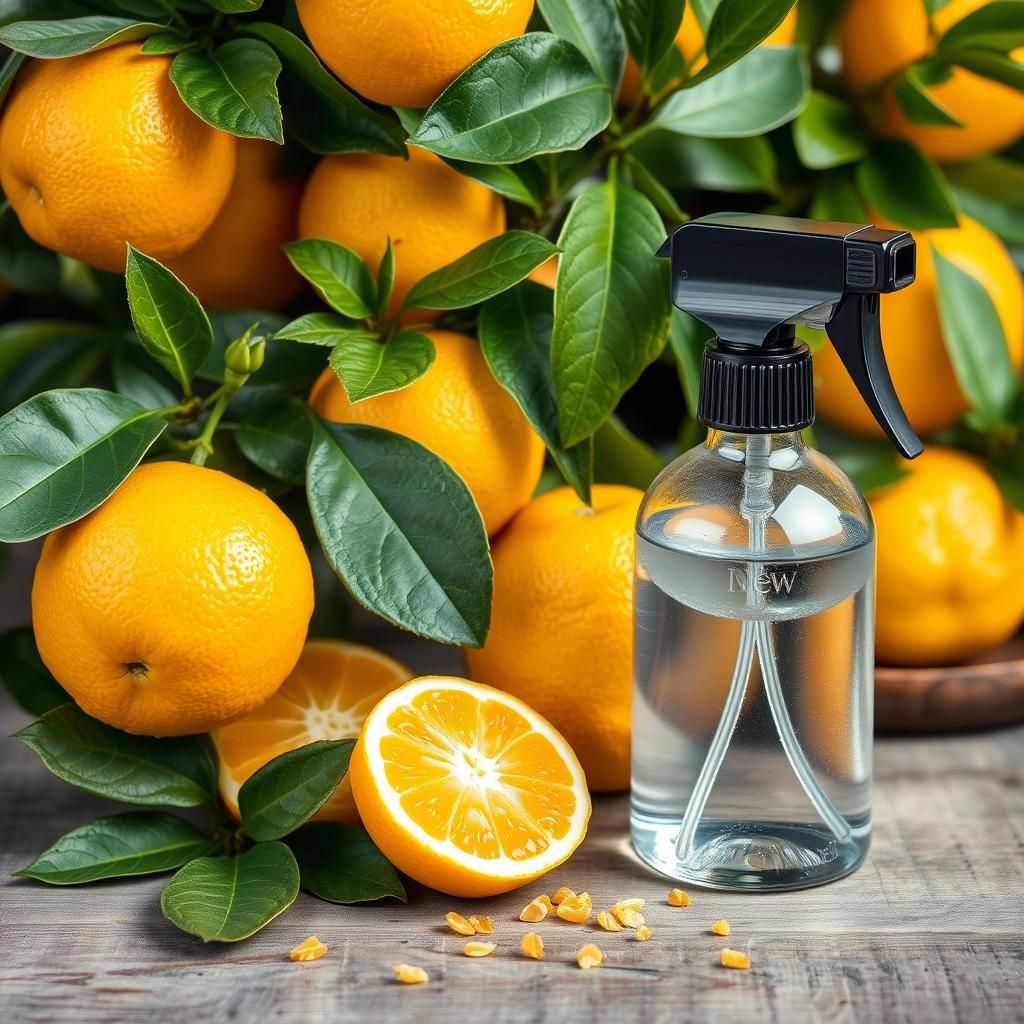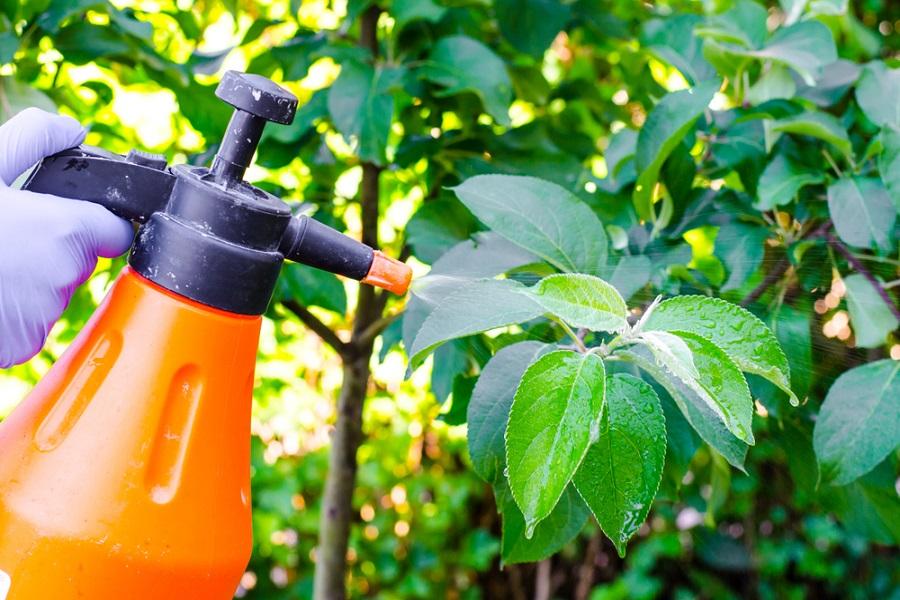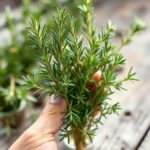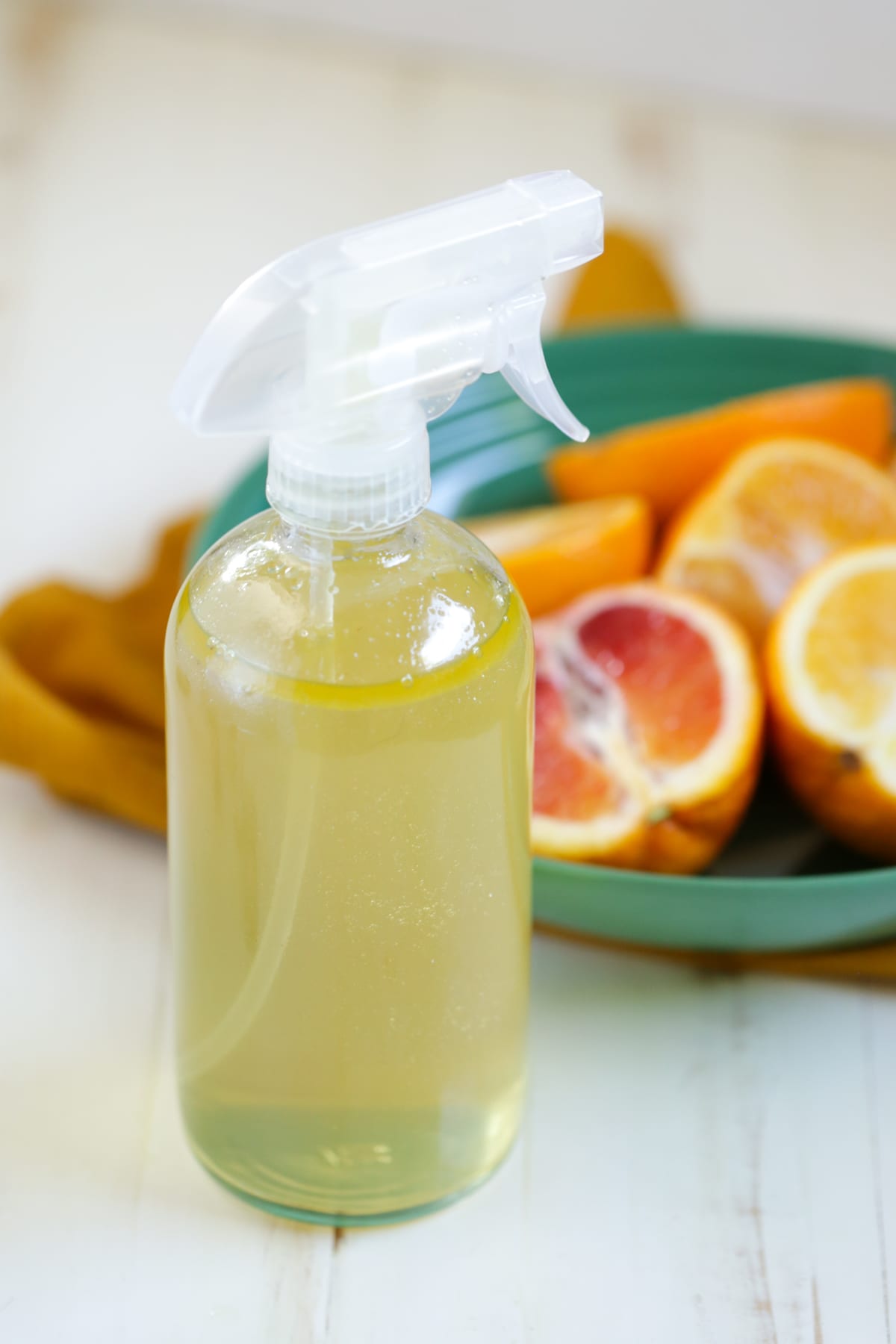Ultimate Guide to Homemade Spray for Citrus Trees: Effective Recipes and Tips

Caring for citrus trees can be a rewarding endeavor, but it often comes with challenges, such as pests and diseases. Using homemade sprays is an effective and environmentally friendly way to protect your beloved trees while promoting healthy growth and abundant fruit production. In this ultimate guide, we will explore a variety of effective recipes and essential tips for creating your own citrus tree sprays. Learn how to harness natural ingredients to combat common issues, promote vigor, and enhance the flavor of your harvest. With the right knowledge and preparation, you can ensure your citrus trees thrive for years to come.
Homemade Spray for Citrus Trees
Creating a homemade spray for your citrus trees can help protect them from pests and diseases while promoting healthy growth. One of the most effective solutions includes a mixture of natural ingredients such as water, soap, and oils, specifically neem oil or horticultural oil, which can suffocate harmful insects and deter fungal growth. By using this type of spray, gardeners can avoid harsh chemicals, ensuring that their fruits remain safe for consumption. Additionally, regular applications of this organic spray can enhance the resilience of the trees, allowing them to thrive in diverse conditions while maintaining their vitality.
Benefits of Homemade Spray
Using a homemade spray offers several benefits for citrus trees, including improved pest control without the use of synthetic chemicals. This method helps to maintain the ecological balance in gardens, as it is less harmful to beneficial insects, such as bees and ladybugs. Moreover, homemade sprays can often be made from readily available ingredients, making them accessible and economical for gardeners. They are specifically tailored to address the unique challenges of citrus cultivation, ensuring that trees receive the needed protection against insect infestations and diseases.
Ingredients for Effective Spray
An effective homemade spray for citrus trees typically requires a few simple ingredients. Commonly used components include water, a few drops of dish soap for emulsification, and an oil like neem oil or horticultural oil that can effectively deter pests. Additionally, some gardeners incorporate baking soda or cider vinegar to enhance its fungicidal properties. Each of these ingredients plays a crucial role in making the spray potent enough to combat common citrus tree foes such as aphids, spider mites, and fungal infections.
How to Prepare the Spray
Preparing a homemade spray is straightforward and requires only a few steps to ensure that it is both effective and safe. Start by mixing one tablespoon of dish soap with one quart of water in a spray bottle. Next, add two tablespoons of neem oil or horticultural oil to the mixture and shake gently to combine thoroughly. It is important to test the spray on a small area of the tree first, allowing 24 hours to check for any adverse reactions before applying it to the entire tree.
Application Techniques
Proper application techniques are vital to the effectiveness of a homemade spray for citrus trees. Make sure to apply the spray during the early morning or late evening when temperatures are cooler and the sun is less intense. Shake the spray bottle well before each use to ensure that all ingredients are properly mixed. Aim to cover the entire tree, focusing on the undersides of leaves and any potential problem areas where pests may be hiding. Repeat applications every 7-14 days, especially after rain, to maintain optimal protection.
When to Use the Spray
Timing is crucial when using a homemade spray for citrus trees. It is best to begin applications at the first signs of pests or fungal diseases, as early intervention prevents these issues from escalating. Additionally, using the spray during active growth periods, usually in spring and summer, ensures that the trees receive maximum protection. Monitoring your trees regularly can help determine the right moments for applications, allowing for timely responses to any potential threats.
| Ingredient | Function |
|---|---|
| Water | Base for the spray, dilutes the mixture |
| Dish Soap | Helps to emulsify oils and improve adherence |
| Neem Oil | Natural pesticide that targets pests while being less harmful to beneficial insects |
| Baking Soda | Works as a fungicide to prevent fungal diseases |
| Cider Vinegar | Enhances the fungicidal properties of the spray |
What is the best natural spray for citrus trees?

The best natural spray for citrus trees is often considered to be a mixture of neem oil and water. Neem oil is derived from the seeds of the neem tree and possesses a variety of beneficial properties, including insecticidal activity against a wide range of pests that commonly afflict citrus trees, such as aphids, spider mites, and whiteflies. It also has fungicidal properties that can help manage diseases like powdery mildew and sooty mold.
When using neem oil as a spray, it is essential to dilute it properly to minimize the risk of harming beneficial insects and the tree itself. Generally, a solution of one to two tablespoons of neem oil mixed with one gallon of water, along with a few drops of liquid soap as an emulsifier, can be effective.
Benefits of Using Neem Oil
Using neem oil for citrus trees can yield numerous benefits, making it a top choice for organic gardening enthusiasts.
See also:
- Pest control: Neem oil disrupts the life cycle of pests, preventing them from feeding and reproducing.
- Fungal protection: The antifungal properties help in preventing common diseases that can affect the health of the trees.
- Environmentally friendly: Being a natural product, it is less harmful to beneficial insects and the surrounding ecosystem.
How to Apply Neem Oil on Citrus Trees
Application of neem oil should be done carefully to ensure it is effective and does not damage the plant.
- Timing: Apply during the late afternoon or evening to avoid leaf burn from the sun.
- Coverage: Make sure to cover the top and bottom of the leaves and all parts of the tree.
- Frequency: Reapply every 7 to 14 days, or after heavy rainfall, to maintain its effectiveness.
Alternatives to Neem Oil
While neem oil is a popular choice, several other natural sprays can also support the health of citrus trees.
- Insecticidal soap: A mix of natural oils and soap can help manage soft-bodied pests without harming the plant.
- Garlic spray: This homemade remedy can deter pests due to its strong odor and natural properties.
- Essential oils: Oils like peppermint, rosemary, and citrus oils can serve as natural repellents against pests.
Considerations When Using Natural Sprays
Employing natural sprays demands attention to certain factors to ensure both efficacy and safety.
- Plant health: Always assess the overall health of the citrus trees before application; stressed trees may react negatively.
- Weather conditions: Avoid applying sprays during windy or rainy conditions to prevent drift and wash-off.
- Compatibility: Ensure that the natural spray you are using is compatible with any other treatments already in use.
Precautions and Safety Measures
Safety and precautionary measures are crucial when using natural sprays to protect both the user and the environment.
- Personal protective equipment: Always wear gloves and a mask during application to avoid skin irritation or inhalation.
- Storage: Keep mixtures in a cool, dark place to maintain their efficacy and prevent degradation.
- Children and pets: Keep children and pets away from treated areas until the spray has dried completely.
How do you make bug spray for citrus trees?

To make bug spray for citrus trees, you can use a variety of natural ingredients that are effective at repelling or killing common pests without harming the tree or the surrounding environment. Here’s a simple recipe to create your own homemade bug spray.
Ingredients and Supplies
You will need the following ingredients and supplies to create an effective bug spray for citrus trees:
- Liquid soap (preferably biodegradable)
- Vegetable oil (like canola or neem oil)
- Water
- Spray bottle (clean and preferably with a fine mist setting)
- Optional: Essential oils (like peppermint or garlic oil)
Mixing the Ingredients
To prepare the bug spray, you'll want to follow these steps carefully to ensure proper mixing and effectiveness.
- Start by mixing 1 tablespoon of liquid soap with 1 cup of vegetable oil in a small container.
- Add this mixture to a spray bottle filled with 1 gallon of water.
- If desired, add 10-15 drops of your chosen essential oil for added insect-repelling properties.
Application Techniques
Applying the bug spray correctly is crucial for its effectiveness. Here’s how to do it:
- Test the spray on a small section of the tree before applying it fully to ensure there is no adverse reaction.
- Spray the solution early in the morning or late in the afternoon to avoid direct sunlight, which can cause the spray to evaporate too quickly.
- Focus on covering the undersides of leaves, as many pests tend to hide there.
Frequency of Application
Maintaining a consistent application schedule is key to keeping your citrus trees healthy and pest-free.
- Apply the bug spray every 7-10 days for as long as you notice pests.
- After heavy rain, consider reapplying, as the spray can wash away.
- During the growing season, maintain vigilance and adjust frequency as needed based on pest visibility.
Tips for Success
Here are some additional tips to enhance the effectiveness of your bug spray and protect your citrus trees:

- Regularly inspect your citrus trees for signs of pests, such as holes or discoloration on leaves.
- Encourage beneficial insects like ladybugs and lacewings that can help control pest populations naturally.
- Keep your trees healthy through proper watering and fertilization, as healthy trees are more resilient to pests.
How to make a homemade citrus spray?

To make a homemade citrus spray, you’ll need to follow a series of simple steps that involve natural ingredients commonly found in your kitchen. This eco-friendly spray can serve multiple purposes, including cleaning surfaces and serving as an air freshener. Here’s a detailed guide on how to prepare and use citrus spray.
Ingredients Needed
To create an effective homemade citrus spray, gather the following ingredients:
- Citrus fruits (lemons, oranges, or grapefruits)
- Vinegar (white vinegar is preferred)
- Water
- Essential oils (optional, for added fragrance)
- Spray bottle (preferably glass or BPA-free plastic)
Preparation Steps
The preparation of your citrus spray is straightforward. Follow these steps to ensure you make a potent and effective cleaner:
- Start by peeling the citrus fruits. Ensure to keep the peels as they are rich in essential oils.
- In a jar, combine the citrus peels with vinegar. Fill the jar until the peels are fully submerged in the vinegar.
- Seal the jar tightly and let it sit for about one to two weeks to allow the mixture to infuse.
- After two weeks, strain the mixture into your spray bottle, diluting it with an equal part of water.
Usage of Citrus Spray
Once your homemade citrus spray is ready, it can be utilized in various ways:
- Cleaning surfaces: Spray it directly on countertops, tables, and other surfaces, then wipe with a cloth.
- Freshening air: Lightly mist the spray around your living space to eliminate odors and refresh the air.
- Insect repellent: Citrus has natural repellent properties. Apply the spray around doorways and windows to deter pests.
Benefits of Homemade Citrus Spray
Using a homemade citrus spray comes with various advantages, making it a superior choice over conventional cleaners:
- Natural ingredients: Avoid chemical additives that can be harmful to your health and the environment.
- Cost-effective: Utilize ingredients you already have at home, making it budget-friendly.
- Customizable scent: You can adjust the scent by choosing different types of citrus fruits or adding essential oils to suit your preference.
Storage Tips
To ensure the longevity and effectiveness of your citrus spray, follow these storage tips:
- Store the spray in a cool, dark place to prevent degradation of the citrus oils.
- Keep the spray bottle tightly sealed to reduce evaporation and contamination.
- Label the bottle with the date of preparation to track its shelf life, which is typically around a month.
Questions from Our Readers
What ingredients are needed for a homemade spray for citrus trees?
To make an effective homemade spray for citrus trees, you typically need water, liquid soap, and either neem oil or baking soda. These ingredients help combat pests and diseases while being gentle on the environment. Mixing them in the right proportions ensures the solution is both safe and effective for your citrus plants.
How often should I apply the homemade spray on my citrus trees?
It is recommended to apply the homemade spray every two to four weeks, especially during the active growing season. Regular applications help keep pests at bay and maintain the health of your citrus trees. However, always monitor your plants for any signs of stress or pest activity to adjust your spray schedule accordingly.
Is the homemade spray safe for all citrus varieties?
Yes, the homemade spray is generally safe for all citrus varieties, including oranges, lemons, and limes. However, it's always a good idea to test the spray on a small part of the plant first to ensure there are no adverse reactions. Proper dilution and application techniques can help minimize any potential risks to your trees.
Can I store leftover homemade spray for future use?
Yes, you can store leftover homemade spray in a cool, dark place for a short period, usually up to two weeks. Make sure to label the container with the date and ingredients used. However, it's best to use fresh spray whenever possible, as the effectiveness of natural ingredients can diminish over time.
See also:

If you want to read more articles like Ultimate Guide to Homemade Spray for Citrus Trees: Effective Recipes and Tips, we recommend you check out our Gardeners category.
Leave a Reply
Related Articles